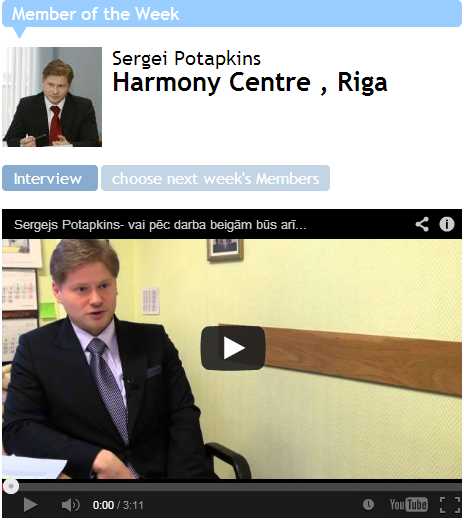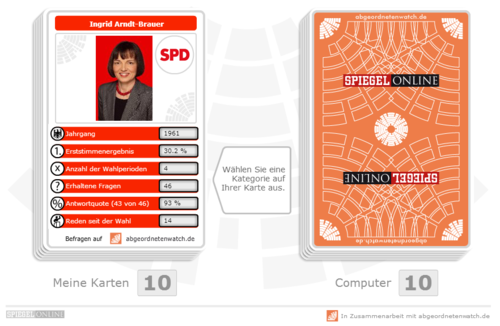When it comes to citizen-MP engagement, it takes two to tango. In my last post, I recounted the lessons learned from our colleagues at Politikercheck.lu and Providus.lv, and our fellow researcher at European University Institute, regarding effective approaches developed by PMOs to engage citizens online. The next question we discussed at #PDFPoland: what approaches are PMOs using to ensure that MPs respond in kind?
(For lessons learned from parliamentary efforts to engage citizens, check out the important work (in Spanish) of Miguel Ángel Gonzalo, webmaster for the Spanish Congress of Deputies. We’ll be providing an English version shortly at OpeningParliament.org.)
Before diving in, let me quickly point out that a number of the approaches described below are quite similar to those discussed in the previous post. Why? Because many of them invoke the same motivational tactics, including: competition; the desires for acknowledgement, victory, constructive dialogue; to win the support of others, etc. Appealing to these various motives can help PMOs attract and retain MP participation in their websites. Here are 6 approaches that PMOs are using to do so:
1. Stimulating a “competition to the top”: MPs often want to appear open and engaging. Providing awards or rewards for the most participatory MPs can help spur their competitive drive. Providus, at GudrasGalvas, gives “activity badges” to those MPs with the greatest participation records and features their photo on the website’s homepage. Website users can vote for an “MP of the week” (see image below), who is featured on the homepage along with a video interview. Politikercheck conducts an annual review of MP engagement, lauding those who participate most. Rewarding good behavior can help drive positive engagement better than punishing non-participation.
2. Applying pressure: A common way to make MPs feel pressure to answer citizens’ questions is to make sure they understand just how important it is to answer those questions. Providing voting or “+1” features that allow other website users to indicate support for a question helps MPs realize that it’s not just one citizen who wants to know the answer, but 300 or 3,000. This pressure is only helpful if MPs know it exists. If MPs do not use email using faxes or contacting personal or party staff may help ensure that MPs know that constituents are asking questions.
3. Provide special features for MPs: Aside from the opportunity to engage constituents, PMO websites can provide other perks for MPs that help retain their interest. Media monitoring, calendars of MP activities, and surveys of constituents are some of the tools Providus provides to encourage MP participation.
4. Reducing the noise: Many MPs are turning to social media to meet their communication goals (at least, during elections in the US context). One distinct advantage of PMO communication tools is that they offer a more structured environment that prioritizes constructive engagement. ParliamentWatch members moderate citizen questions according to a strict code of conduct. MPs appreciate being able to engage citizens without having to face insults and slander, or being set up by a political operative for their competitor. But PMO websites must be seen as being fair and independent if their moderation is going to be successful, which leads us to the next point.
5. Building trust: MPs are more likely to participate in a platform that is seen as non-partisan and trustworthy. Codes of conduct can be helpful in setting forth expectations for PMO communication tools. To help demonstrate their impartiality, ParliamentWatch organizations forward all communications sent to a particular MP, even those that website moderators choose not to post. Being transparent with MPs can help forge stronger relationships.
6. Taking advantage of elections: Elections are the time that MPs recommit to their electorates, so it’s a great time to get them to answer citizens’ questions. Since elections also mark an occasion for many citizens to reconnect to the political process, elections provide a great opportunity to tango.




